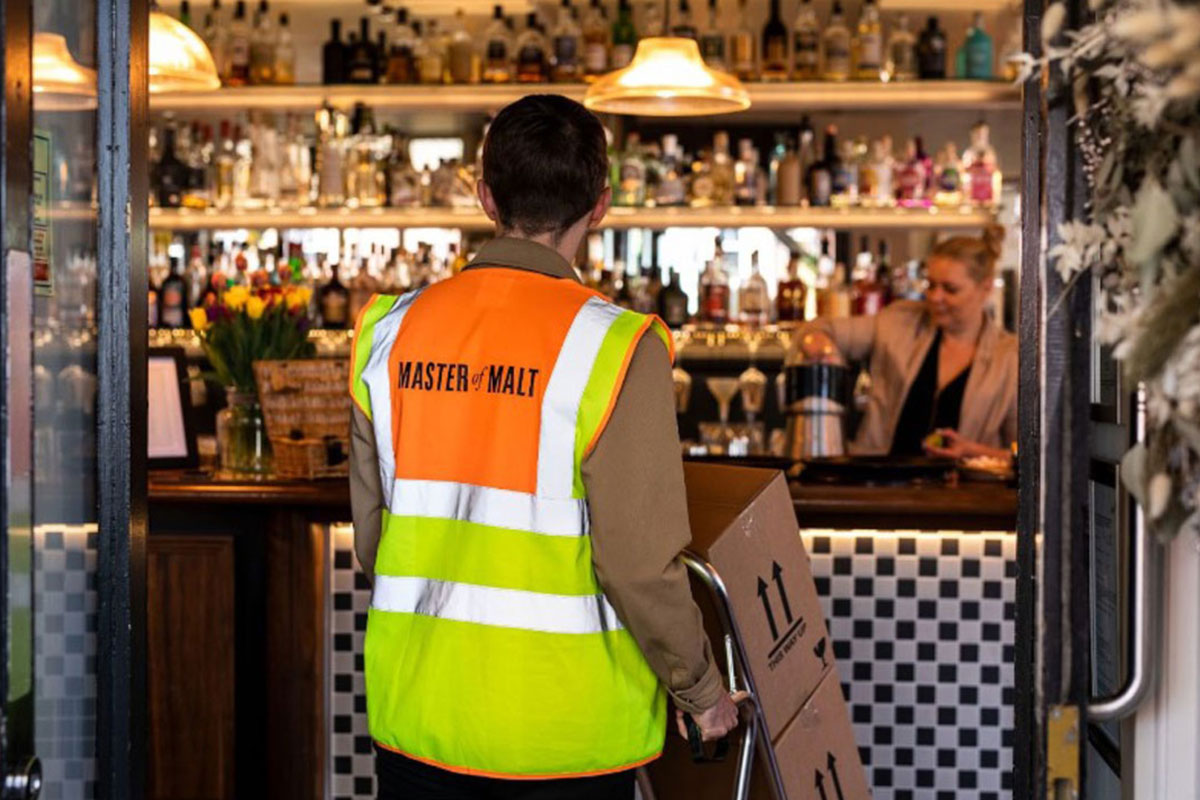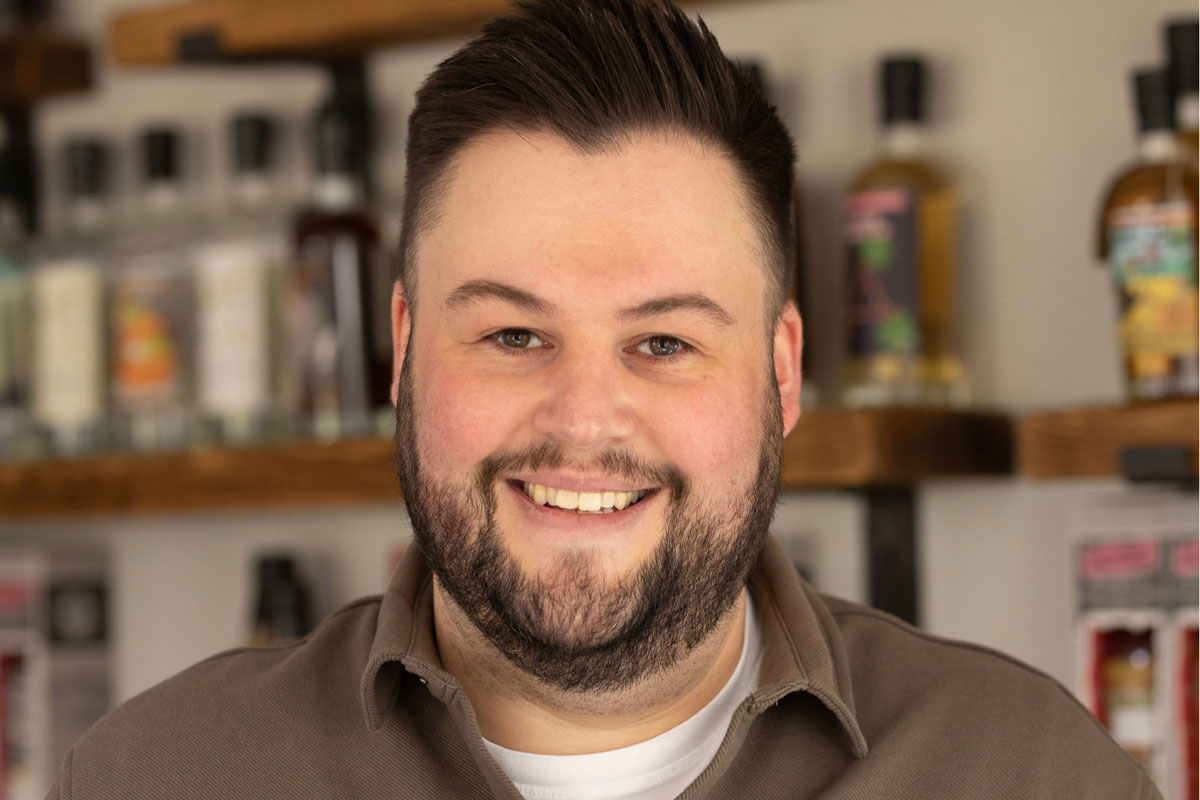
By Dave Hunter
When drinks supplier Master of Malt announced last month that it was once again 100% owned by its founder, it was the latest evolution of a company that has been steadily growing its footprint in the on-trade over the past three years.
Founded in 1999 by Justin Petszaft, Master of Malt – along with parent company Atom Group – was sold to AB InBev in 2018.
Last month it was announced that Petszaft had taken ownership of the company back, stating that Atom ‘could only reach its full potential as an independent founder-led company’.
“Going into the warehouse, it’s like an adult’s candy store.”
The trade-facing section of the company, Master of Malt Trade, was originally set up in 2010 but then relaunched in 2021 as the company looked to really expand its service to – and presence in – the on-trade.
Speaking to SLTN, trade lead Liam Belton said that while Master of Malt has traditionally been known as a specialist supplier, and is proud of that reputation, the team has been working hard to expand its offering of core spirits brands in order to broaden its appeal to a wider range of trade customers.

“We’re stocking 15,500+ different SKUs,” said Belton.
“Going into the warehouse is like an adult’s candy store. Just shelves and shelves of different types of spirits.
“A lot of them are whisky, but we have everything through to your tequilas and your liqueurs, as well as a small amount of wines and Champagnes as well.
“Historically we were probably seen as more of a specialist wholesaler with that range. And, of course, we don’t want to come away from that, because we do stock the range and we do work with a vast number of suppliers and brands.
“But at the same time, as we’ve grown as a business, we’ve had to pivot to make sure we can be competitive on your core bar range – your Smirnoff, your Diageo, your Pernod products as well.
“So a lot of work has gone into building relationships with those suppliers as well. Improving costs.”
Belton added that, as volumes have grown, the company is now in a better position with regards to negotiating with brands on price – an advantage it is happy to pass on to its customers.
That’s perhaps more important than ever in the current climate, where operators are keen to do whatever they can to keep their overheads down.
“We’d always love to be the primary supplier, and I believe we’re now positioned to be that, but we’re also happy to be a secondary supplier,” said Belton.
“I think that now, more than ever, there’s probably less loyalty in a supplier or a brand, because price is so important. A lot of customers out there will now have two, three or maybe even more wholesalers.
“On a Monday when they go to order they will have three different websites open and they’ll check the price on each of them. I think that’s more the case now than it ever has before, which I totally understand.
“I think now, more than ever, there’s less loyalty in a supplier.”
“Historically we’ve been set up as a secondary wholesaler. More now primary. But we’re happy to sit anywhere in between.
“And I’d like to think that when it comes to our service and the offer we have, then a lot of the times when we sit as a secondary wholesaler to begin with, over time we become the primary wholesaler due to the service offering.”
The company’s value offering includes its multi-buy offers, which it now runs several times a year. The offers – six for the price of five and five for the price of four – allow customers to build cases of various different products at a reduced price.
“A lot of brands want to do case deals of six plus one or whatever it might be,” explained Belton.
“Instead, what we found is that customers – the way they shop on our website, anyway – they’re not really interested in buying full cases, unless it’s got really big volume.
“So we set up the mix and match.
“And those deals have a mix of the Brown-Formans and Pernod Ricards of the world, all the way down to smaller brands and independent distilleries. And it means that customers can log on, and if they choose to buy a case of, let’s say, Hendrick’s, they can. But it also means they can buy four bottles of Hendrick’s and a bottle of Isle of Harris Gin.”
And as important as price is, Belton was keen to point out that it isn’t everything.
“Price can only go a certain distance,” he said.
“If a wholesaler can be great on price but they don’t deliver the stock and the bar has nothing to sell that evening… price only goes as far as your service, so equally important is we’re making sure we’re only selling what is available at the time.
“I know there are other wholesalers that sell something that’s not in stock and then they send something else. We don’t do that. We only sell what we have in stock.”

“A lot of work has gone into building relationships with suppliers.”
Master of Malt Trade’s customer base is split into three categories: self-managed accounts, where the operator is happy to buy from the website without any contact with the company, accounts that are managed centrally by the Master of Malt team and, in Scotland, around 140 accounts that are managed by Scottish partner manager Jody Williamson.
And while the market continues to be challenging, Belton said he was optimistic both about Master of Malt Trade’s expansion in Scotland, and about the Scottish trade in general.
He said: “Unfortunately there are still a lot of closures happening out there across the UK, and I don’t think Scotland is any different.
“However, I think there is definitely some optimism, and people that have worked in the trade and are building things for the future; one thing you see that is more important than ever is experience.
“I think a lot of it is about experience, and I think a lot of consumers are going out less but spending more for that experience.
“A lot of people are deciding to stay at home and drink at home, but there’s definitely a lot of places that are doing things right and will come through this even stronger than they were.”




















